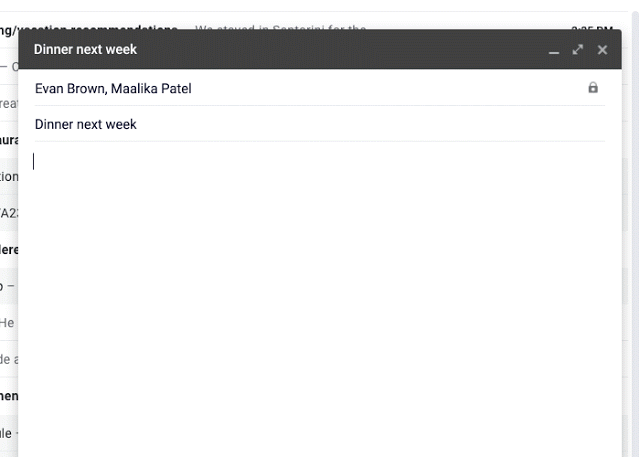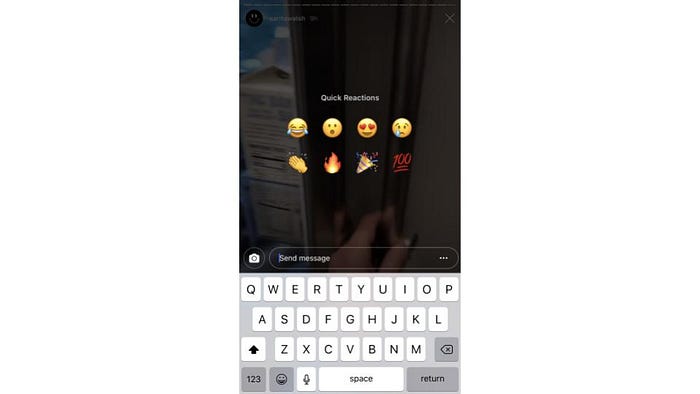empty chats, empty feelings
Google has a program within gmail that suggests phrases you are likely to type, allowing you to respond more quickly. Courtesy of Google
Courtesy of Google
It’s not perfect. When my father emailed my siblings and I asking our t-shirt size, the app suggested ‘Large, please!’ as my response. 😐 On the bright side, I guess Google doesn’t know my shopping habits as well as I thought it did.
But overall, its a convenient feature to speed up emails. Today on Instagram I saw another similar feature. It’s for replying to people’s Instagram Stories. But instead of writing your response, Instagram suggests ‘Quick Reaction’ emojis to help you respond quicker: Instagram Quick Reactions allow for an emotion in a tap
Instagram Quick Reactions allow for an emotion in a tap
I get the intention. But it feels.. empty. If I put up a funny video as my story, and I get a lot laughing face emojis in response, it’s like someone extended the minimum amount of effort to respond. I already feel slighted if I send a long message only to elicit an emoji of a response. This just makes it easy for people to ‘keep in touch’ with 100 friends by tapping a button 100 times. It turns what was a response into the ‘like’ button.
On the other hand it will surely help Instagram. More responses mean more clicks to see what’s in your inbox, which results in more engagement, more eyeballs, and more ad money. The problem is that what’s best for Facebook and Instagram’s balance sheet is an erosion of genuine personal connections for the user. Instagram is a machine for quick interactions, and more of them.
Which could be fine.
Except that in my time at London Business School I have seen no fewer than 4 groups of students attempt to build a new social app aimed toward people connecting in deeper, more personal ways. In their research, these founders have discovered clear demand for this kind of product, as well as clear distaste for the like-for-like communication style of Instagram. This Medium post describes what a genuine-connection focused social media platform could be like.
Why doesn’t Facebook build it themselves? Surely its better to disrupt yourself than be disrupted. For one, it’s a business model problem. It simply doesn’t make economic sense to disrupt a cash cow like Facebook.
And second, most disruptors focus on an edge customer market that at the time seems too small for giants like Facebook to focus on. The edge market in this case are those consumers who are rejecting the shallow communication that Facebook and Instagram support. These consumers are hard to identify, precisely because they still use Instagram and Facebook. At least I do. But they are there and yearning for something better. A platform that makes you feel fulfilled and healthier after using it, instead of empty but dopamine high.







































































